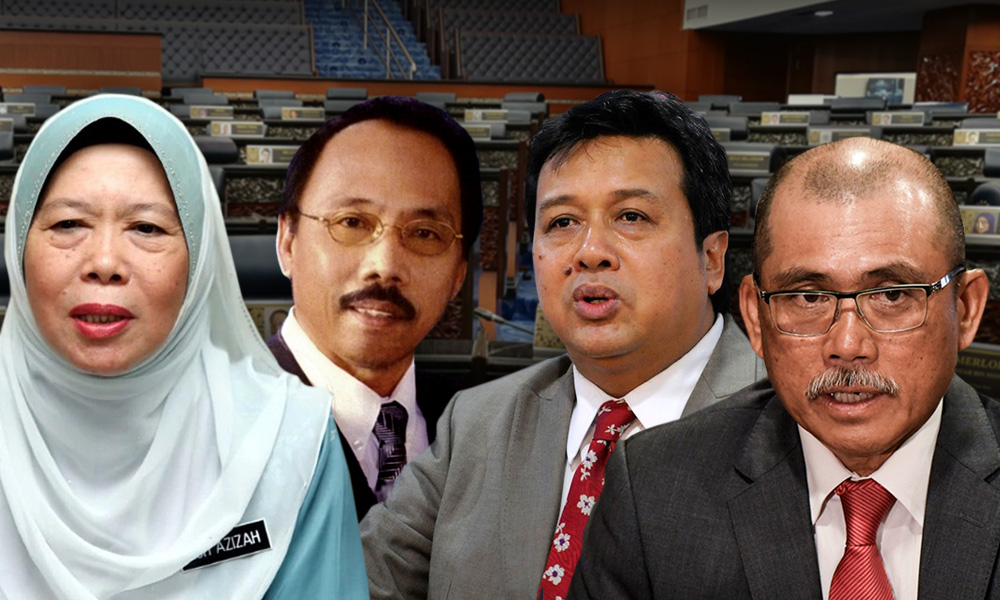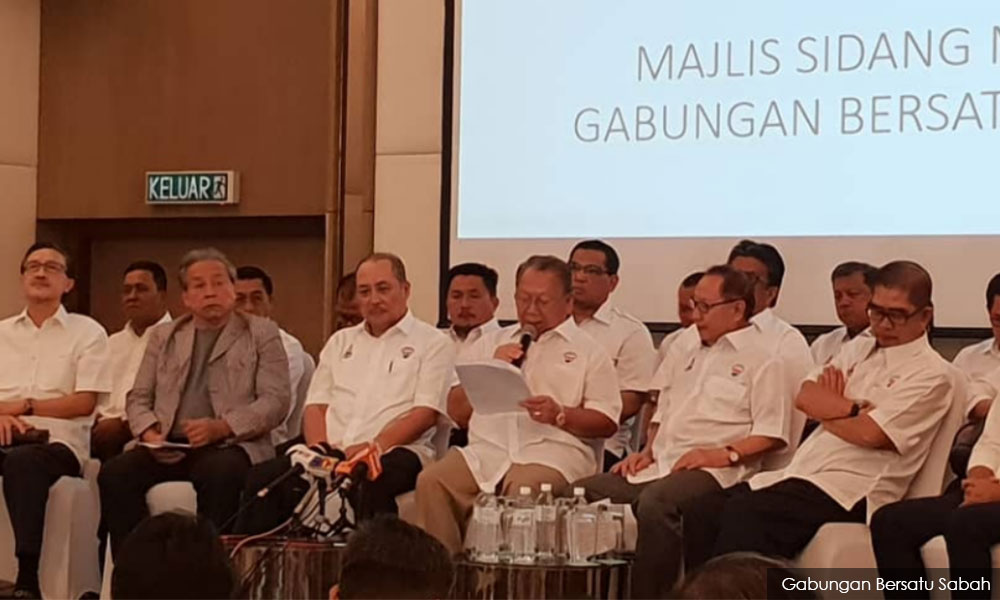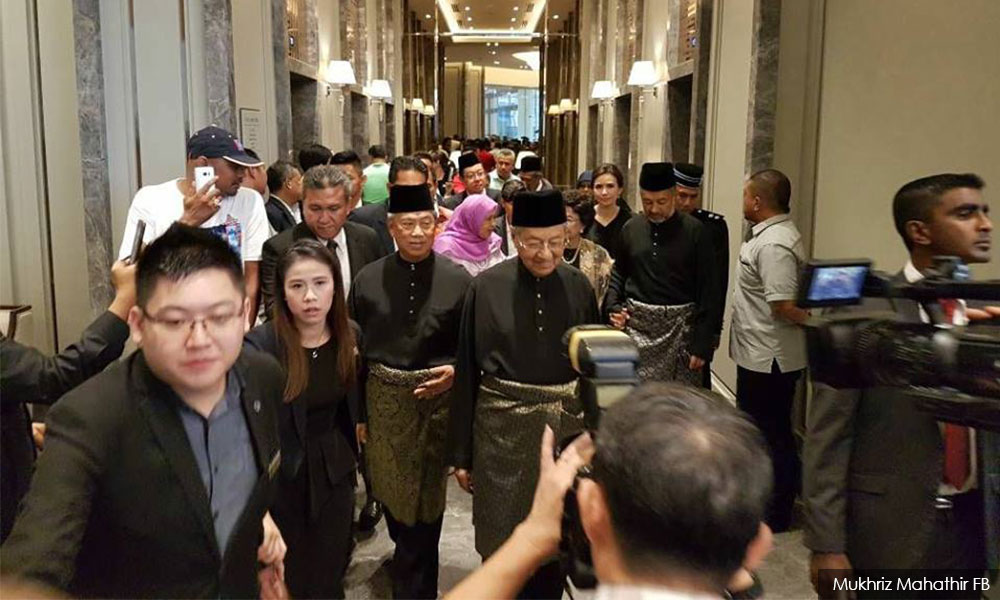
Everyone knows what is going on. The large exodus of Umno members into Bersatu (soon) are driven by lust for power and a desire to avoid punishment for their sins.
These former Umno members made it clear: they wanted to join a party in government so they could better serve the people.
This is a direct confession that this exodus is for power and power only. Because the past regime was ridden with excesses of corruption and abuse of power, we wonder if this exodus was also to cleanse their past sins.
In both cases, they are directly in conflict with the fundamental democratic and ethical principles which we expect our politicians to uphold.
Power-cleansing sins
If the exodus was to cleanse their sins, this is an abuse of power because the government should have no power to decide who gets charged and who is freed.
The process of investigation and prosecution must be independent and impartial, and if the prime minister’s tap on the shoulder could make a difference, then it defeats the whole system.
If the exodus was for power, then the voters’ choice of government is immediately frustrated.
It doesn’t matter who the people voted for and who they rejected, because in the end, the faces of government and opposition are determined in the dark backroom by political elites.
This simple yet fundamental notion of democracy is brutally assaulted when there is a large exodus that changes the post-election outcome that voters expected.
For example, if 30 to 40 ex-Umno politicians join Bersatu, the people’s votes will be rendered nugatory – an elusive exercise that has no material effect.
It is an insult to the democratic mandate, it is a breach of confidence and it is a betrayal of trust.
Abusing the democratic language
However, the worst thing is how proud certain leaders were in successfully orchestrating this exodus and how disgustingly they have thwarted the democratic language for their selfish gains.

Some leaders said that the exodus was necessary because there were “calls” for Bersatu to spread its wings to Sabah.
Some leaders also said that this exodus was what the people wanted. Some leaders even said that this exodus would be beneficial to voters as they will soon migrate from opposition to the government.
By using the language of democracy, by claiming they are doing what the people wanted when it is clear as daylight that it is actually contrary, is to serve their own undemocratic and unethical practice.
This explains why most people are disillusioned with politics today. You do something clearly undemocratic, but you call it democracy; you do something to defeat democracy, but you say it serves democracy. Smoke and mirrors surround us.
When most Malaysians voted for “change” on May 9, we are sensible enough not to expect instant glory. However, we did expect the bare minimum: that this time it would be different.
In the seven months since Harapan took power, Malaysia Baru has never been more than a concept; now it’s close to being reduced to sarcasm and mockery.
The curse Harapan is under is called “Nothing has changed”.
Most things remain the same
For the ordinary Malaysian, most things had remained the same. In some cases, it became worse.
The general economic outlook remains pessimistic, the cost of living remains high, draconian laws remain intact, race relations remain volatile, manifesto promises remain unfulfilled and U-turns are rife.

The cabinet’s incompetence, indecisiveness, and timidity remain apparent. The only difference seems to be that there is no 1MDB – but we need to apply extremely low standards to be satiated with this.
Against the criticism that Harapan is just like BN, Harapan completes their critics’ task for them.
The large exodus is the perfect recipe to file under the “Nothing has changed” category.
By altering the face of the government by including a vast number of former Umno members, it is now difficult to deny that Bersatu is Umno 2.0, and Harapan is BN 2.0.
I wouldn’t be surprised if disillusionment and disgust are now the common reactions for Malaysian politics because the rakyat, who made their voices heard through the ballot box, have been taken for fools. Why even vote if politicians are able to decide for themselves who is to win power?
More than unethical
Of course, the exodus is legal, but that doesn’t mean it’s acceptable. Such frog-jumping practices are more than unethical because these involve the heavy principle of democracy and the rights of the people.
It stays in the realm of our collective consciousness of knowing what is right and what is wrong. It resides in the unwritten and unspoken law of acting in a way that the people expect according to the standards of honour and integrity.
Seven months ago, these principles would have been celebrated by the Harapan coalition that comprises men and women we believed in. But now that power is in their hands, their voices are muffled.
This rude awakening reminds me that money and power do the talking.
When it is raining frogs, do we need a meteorologist to tell us the weather is bad?
JAMES CHAI works at a law firm. His voyage in life is made less lonely with a family of deep love, friends of good humour and teachers of selfless giving. This affirms his conviction in the common good of people: the better angels of our nature. E-mail him at jameschai.mpuk@gmail.com -Mkini



No comments:
Post a Comment
Note: Only a member of this blog may post a comment.